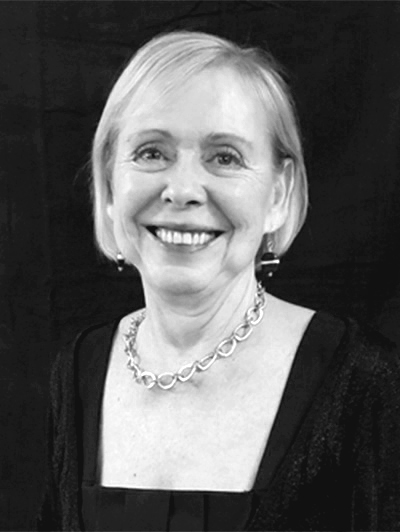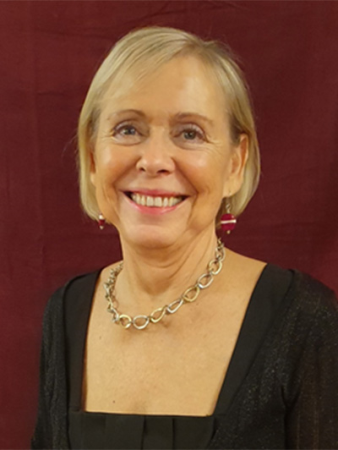Ingrīda Leimane
1948
English language teacher, folk dance group leader, active public worker
Ingrida Leimane (née Rozkalns (Rožkalns)) was born on 17 October 1948 in Copenhagen, Denmark, and spent her childhood and school years in England. She completed her primary and secondary school education in Leeds, Northern England, and attended a Latvian school in Bradford. She took her first dance steps in kindergarten; after graduation, she started dancing with the folk-dance group “Sakta” where she mastered the art of folk dance under the guidance of master Vera Rullina (Vera Rulliņa).
Leimane continued her education in London at Trent Park College, graduating with a bachelor’s degree in Art Teaching. Leimane worked in this profession from 1970 to 1972.
After moving to Stockholm, Sweden, in 1972, she worked as an English teacher in various schools and companies and was a lecturer at the Swedish Defence College for twenty years. At the same time, she was actively involved in community work – at the Stockholm Latvian Saturday School, children's summer camps and Corporation Imeria. She sang in vocal ensembles and the Stockholm Latvian Choir. In 1973, at the suggestion of Vera Rullina, Leimane founded the folk-dance group “Zibenitis” which she led until 1998. “Zibenitis” took part in folk dance performances at the European Latvian Song Festivals in Cologne (1973), London (1977) and Boston (1978).
In 1977 Leimane received an invitation to create a folk-dance performance for the 1979 World Free Latvian Song Days in Gotland. The central theme of the performance was to present folk dances and traditions of the winter and summer solstice. The programme “Solstice” (Saulgrieži) was arranged and conducted by Leimane with the advice and support of Skaidrite Dariusa (Skaidrīte Dariusa). Around 200 dancers took part in the performance while the musical accompaniment was provided by a special ensemble of musicians playing kokle (Latvian string instrument), pipes, flute, violin, French horn, trumpet as well as vocal voices led by conductors Silvija Stroda and Marks Opeskins.
A significant event was the folk dance and folk music show “The Heritage of the National Spirit” (Tautas gara mantojums), which was staged in 1989 at the 6th European Latvian Song Festival in Helsingborg under the direction of Leimane and Silvija Strode. The performance gave a broad insight into the richness and diversity of the heritage of our national spirit – Latvian virtues, customs and ways of life, both in everyday life and on festive occasions.
Leimane was the director of the folk-dance performances at the 1st World Free Latvian Song Days in Europe in Visby (1979) and the 6th European Latvian Song Festival in Helsingborg (1989).
Leimane received the award of the Latvian Academic Organisation in Sweden for active public work (1978), the Certificate of Recognition of the World Association of Free Latvians for the folk dance performance “Saulgriezi” (1979) in Song Days of 1979 in Gotland, a Certificate of Recognition from the Ministry of Education and Science of the Republic of Latvia for significant contribution to the promotion of Latvian education in the diaspora (2013), a Certificate of Recognition from the Ambassador of the Republic of Latvia to the Kingdom of Sweden for cooperation with the Embassy and selfless work in Latvian organisations (2021) and a Certificate of Recognition from the Swedish Latvian Association for selfless work in maintaining the traditions of Latvian culture and identity in Sweden (2021).
Information sources
Leimane, I. (2021. gada 25. oktobris). Biogrāfija. [Elektroniska vēstule Latvijas Nacionālajai bibliotēkai]
Zalcmane, M. (1980, 1. oktobris). PBLA atzinība tautas deju horeogrāfei Ingrīdai Leimanei. Universitas, 46, 74.–75. Universitas, Nr.46 (01.10.1980) (periodika.lv)


